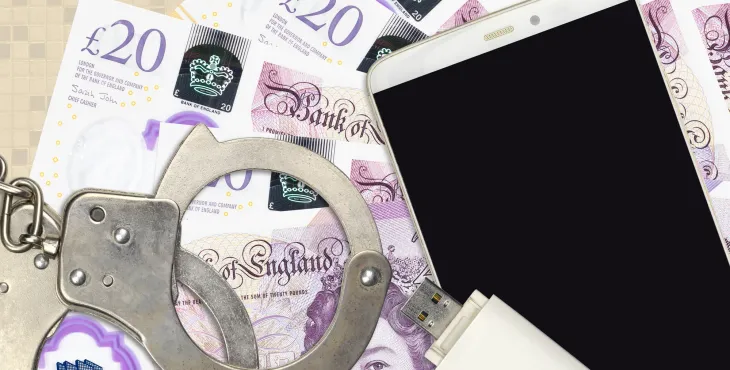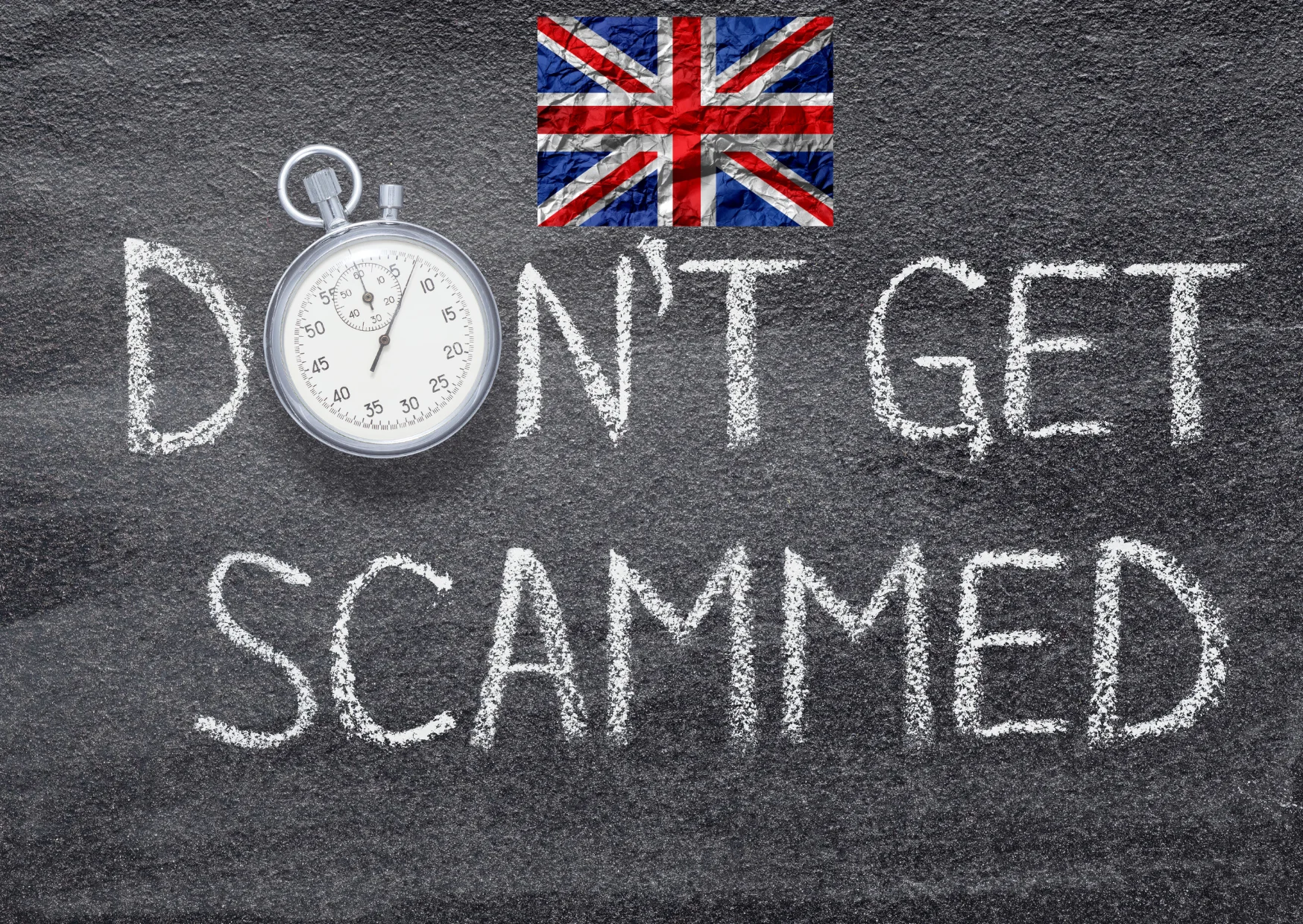
The Most Popular Scams in the UK in 2022
Scams are becoming increasingly common in the UK, and it's important for people to be aware of them in order to protect themselves. In this article, we will discuss some of the most popular scams that are happening in the UK right now. These scams often cause a lot of financial damage and stressful situations to the unsuspecting victims, so it's important to be aware of them and learn how to protect yourself.

Energy scam
One of the most common scams in the UK right now is the energy scam. This is where people are contacted by someone claiming to be from an energy company, and they are offered a discount on their energy bill if they sign up for a new service. However, this new service is often a fake and can be used to commit fraud. People end up paying much more than they would have if they had just stuck with their current provider. If you're ever offered a discount on your energy bill, make sure you do your research before signing up for anything. If anyone contacts you, remember not to give out your personal or financial details, payment details or bank details unless you are absolutely certain that they are one of the legitimate companies.
Email scam
Another common scam in the UK is the email scam asking for payments. This is where someone will send you an email claiming to be from a company or legitimate organisation, and they will ask you to make a payment in order to receive a service or product. However, the email is often from a fake account, and the payment will go into the scammer's bank account instead of the company or organisation that you were expecting it to go to. Very often these messages have spelling mistakes as the fraudster doesn't have good command of English. For them, it's just a numbers game as to how many people they can scam.
According to a survey by Nationwide Building Society, 24% of adults have been the target of an email hacking fraud.
If you ever receive an email asking for a payment, make sure you check the sender's address carefully before making any payments. Never transfer money without doing thorough research into the background of this business, even if they appear like legitimate organisations.
Remember not to click on suspicious link, as very often it leads to scam websites, especially if it ends in bit.ly. If anyone is asking you for transferring money, private information, account details, bank accounts, personal and financial details - be particularly careful.
If you have made a transfer and lost money, contact your bank immediately.
Ghost brokers
A ghost broker is someone who poses as a legitimate insurance broker in order to sell fraudulent policies. This type of scam is becoming more common in the UK, especially among young drivers. Ghost brokers often advertise their services on social media or online classifieds sites. They may also approach potential customers directly, either in person or by phone.
Ghost brokers typically offer significantly cheaper rates than legitimate insurers. This is because they often use false information to obtain quotes from insurance companies. For example, they may lie about the driver's age, address, or job title. They may also claim that the vehicle will be used for business purposes when it will actually be used for personal use. If you end up falling for this scam, your insurance will not be valid in the time of your need.
If you're considering purchasing car insurance from a broker, be sure to check that they are legitimate. You can do this by asking for their broker registration number and verifying it with the Financial Conduct Authority (FCA). You should also make sure that you understand the terms and conditions of the policy before signing anything.
Crash for cash
Crash for cash scams are also becoming more common in the UK. This is where people deliberately cause accidents in order to claim on their insurance. This can be a very costly scam to fall victim to, as it often results in expensive repairs and higher insurance premiums. If you're involved in an accident, make sure you get all the details from the other driver before making any decisions about whether or not to claim on your insurance.
Invest in a front and read view dash cam to record any incidents, so that you if you ever end up in a 'he said she said' type of situations, you have concrete evidence as to who was in the wrong.
Pension scams
Pension scams are another type of scam that is becoming increasingly common in the UK. This is where people are offered pension products that are not actually regulated by the Financial Conduct Authority. These products can often be very risky, and people can end up losing a lot of money if they invest in them. If you're offered a pension product, make sure you check that it is regulated by the Financial Conduct Authority before investing any money.

Purchase scam
This kind of scam is when someone will try to sell you something, that is not what it seems. They may use fake websites or ads to lure you in, or they may even contact you directly and try to Pressure you into buying something. This is especially on common on platforms such as Instagram, Facebook and TikTok.
These types of scams can be very costly, so it's important to be aware of them. If you're ever unsure about a purchase, always do your research and make sure you understand what you're buying before hand. There are also many resources available online that can help you spot a scammer, so don't hesitate to use them if you're ever unsure. Reviews can easily be faked, so look at reviews on credible websites such as Google or Bing.

How to spot a scam?
Firstly, ask the right questions. A cold calls or unexpected message can cause suspicion, particularly if they are requesting personal or financial information from you.
Secondly, never trust anyone, especially if something seems to be too good to be true.
Thirdly, trust your intuition, if you are unsure, contact company directly and do your own research.
Listen to their scammers tone of voice - very often they just read through a script, and once the conversation falls of the rails, they don't know what to do and will hang up.
If you have been asked any personal details - a red light should come on for you. A legitimate company should already have your details on their system.
What to do if you were scammed?
Remember, if something sounds too good to be true, it probably is. Be cautious of any offers that you receive, and never give out your personal details, financial information, credit card details to someone you don't know.
Make all your online accounts secure, keep your banking password in a safe place and set up two factor authentication. Always have your antivirus software up to date.
If you think you may have been scammed, contact Action Fraud on 0300 123 2040 or visit their website at actionfraud.police.uk for advice on what to do next.
Action Fraud is the UK's national fraud reporting centre, and they provide a central point of contact for information about fraud and financially-motivated cyber crime. They will then investigate the incident and try to catch the people responsible. They work closely with National Fraud Intelligence Bureau - a police unit responsible for gathering and analysing evidence of fraud and financially motivated cyber crime.
Remember, if you think you've been a victim of fraud, don't suffer in silence - report it today.